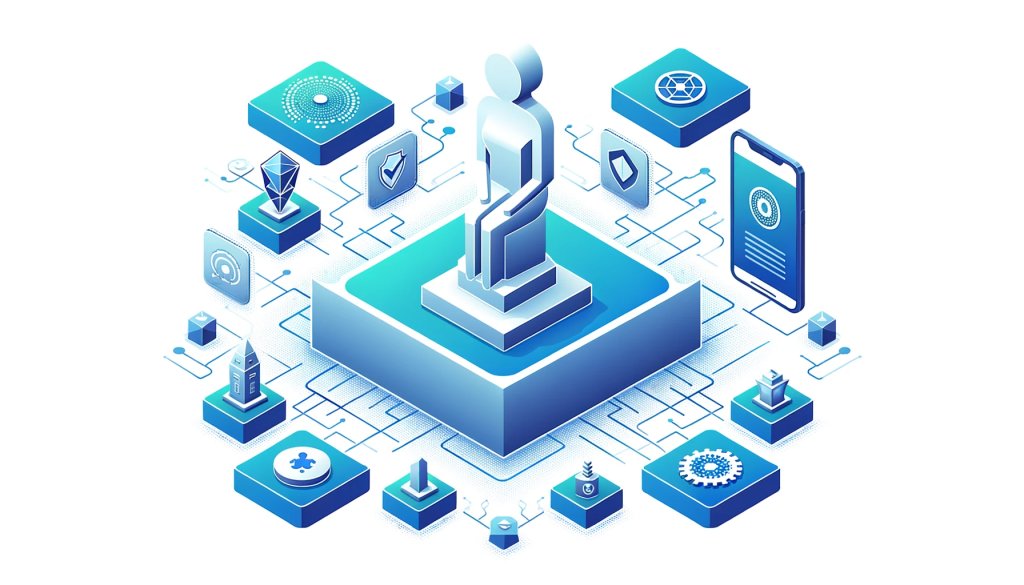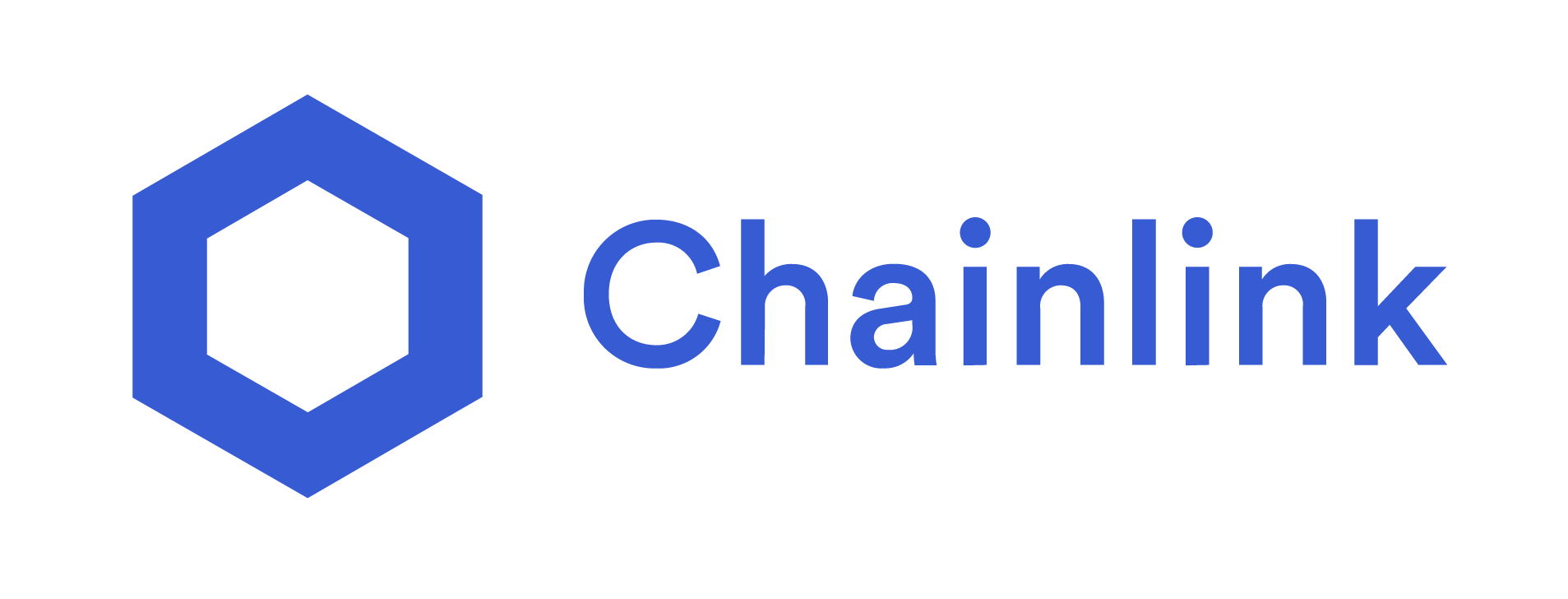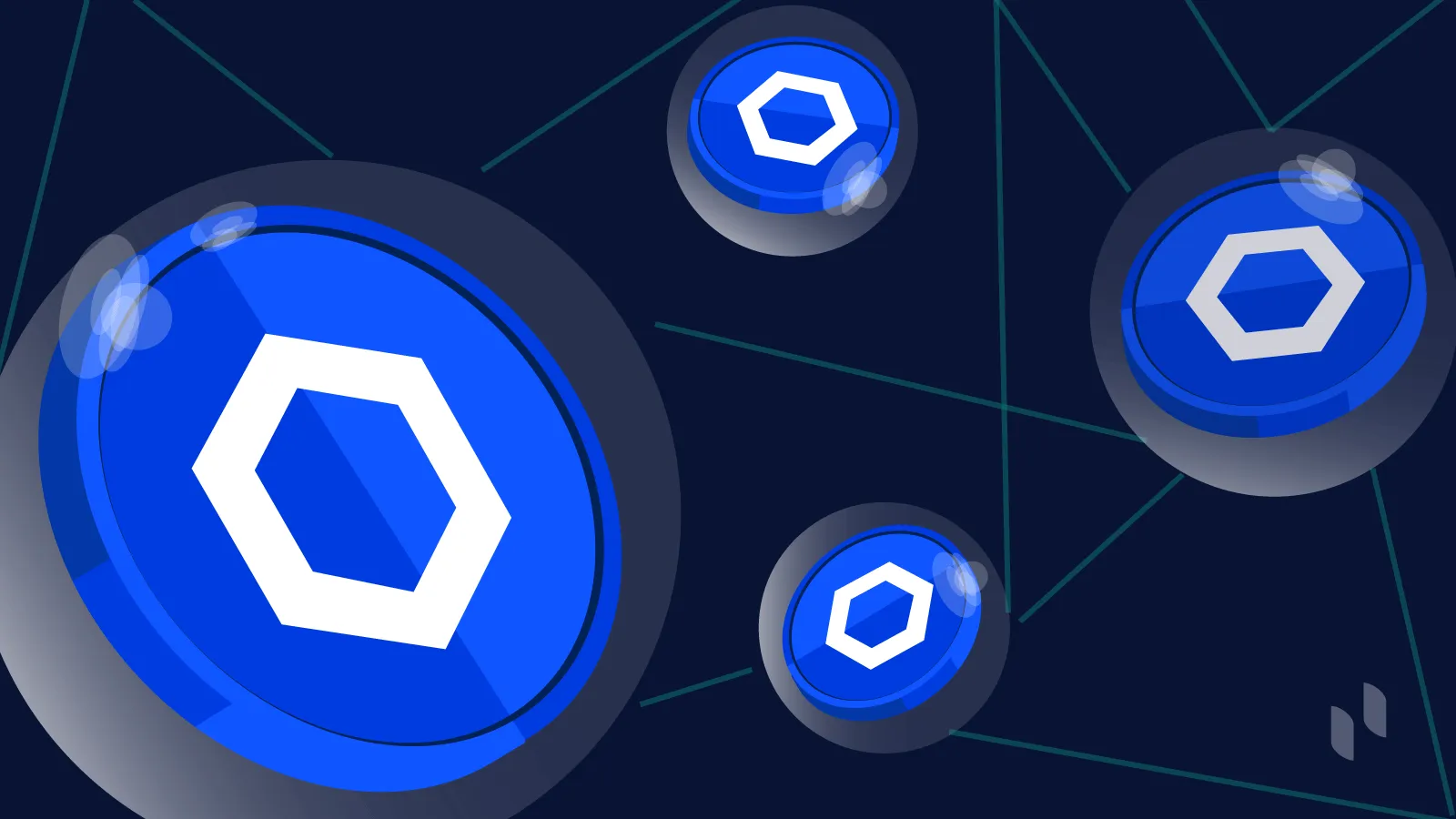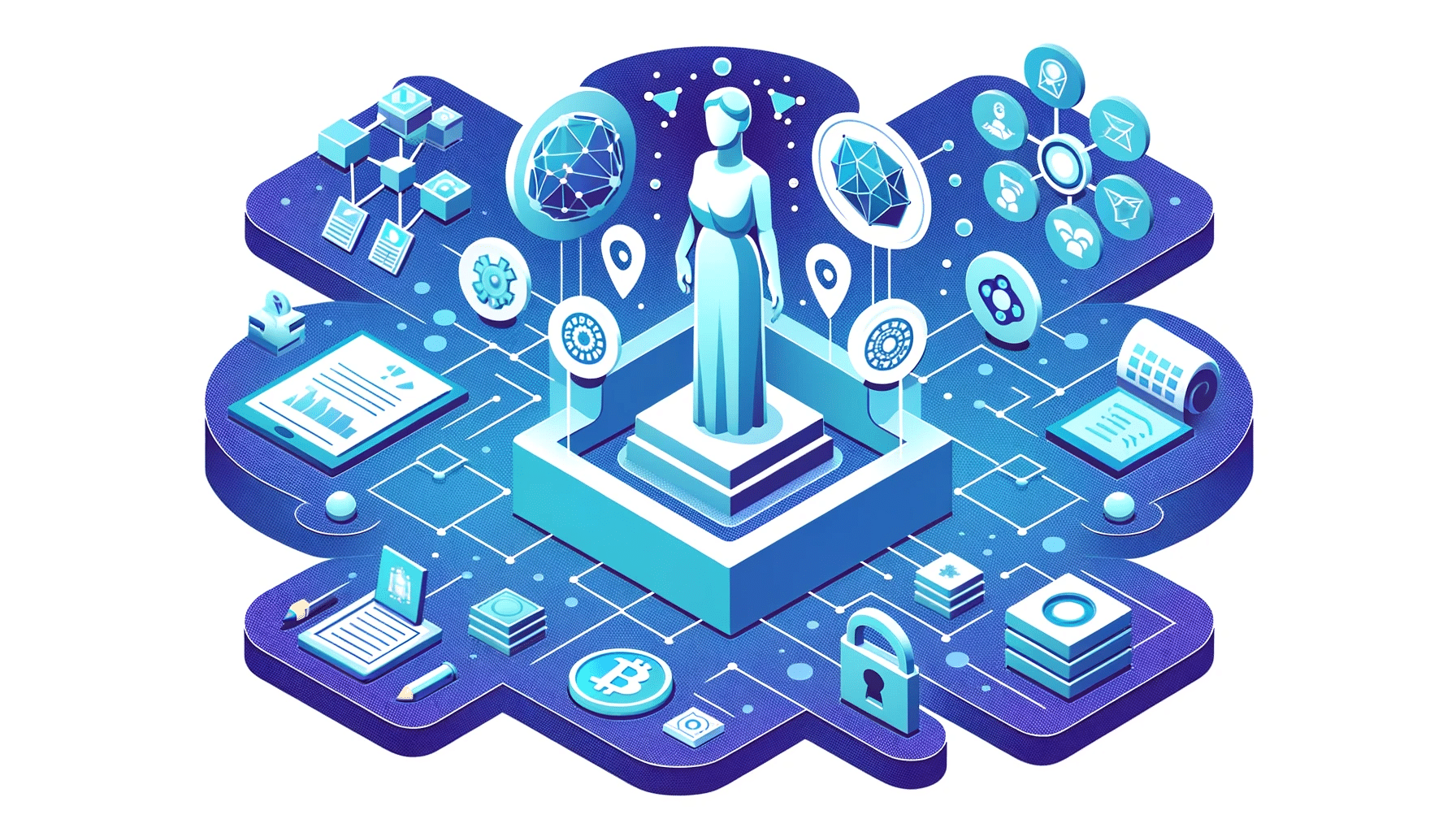Oracles in blockchain are, in a way, the unsung heroes of decentralized technology. These unique systems act as intermediaries, connecting the decentralized digital world and smart contracts with real-world data. In this article, we will explore how they work, their various types, and how they are transforming entire sectors through practical examples, with special attention to leading initiatives like ChainLink.
How Oracles in Blockchain Work
To understand the importance of oracles in blockchain, we must first consider the limitations of smart contracts. Although smart contracts are very useful and innovative programs that operate on the blockchain, their ability to access information outside their network is non-existent. This limitation is not a flaw, but a design feature to ensure the security and immutability of the blockchain. However, for a smart contract to effectively interact with the outside world, it needs a reliable source of external information. This is where oracles come in, providing essential data for smart contracts to make informed decisions and execute actions based on real-world conditions.
Oracles act as data agents that verify and transmit external information to the blockchain. This process usually involves collecting data from various sources, verifying it to ensure accuracy and reliability, and finally, delivering this information to smart contracts. This flow of information is crucial for many blockchain applications, from financial transactions to the execution of automated agreements in sectors such as insurance, logistics, and more.
Importance of Oracles in Blockchain
The inclusion of oracles greatly expands the range of possible applications for blockchain and smart contracts. From insurance and finance to supply chain management and gaming, oracles enable smart contracts to interact and respond to a variety of real-world situations and conditions. This not only increases the relevance of blockchain in different industries but also opens the door to new innovations and business models.
Since smart contracts execute actions based on the information received, the quality of data provided by oracles is of utmost importance. A reliable and well-designed oracle ensures that smart contracts operate as expected, preventing errors and manipulations that could have significant consequences.

Types and Classification of Oracles
Oracles in blockchain can be classified in various ways, depending on their nature and operation. Some of the most common classifications include:
Centralized vs. Decentralized Oracles
Centralized Oracles: Operate under the control of a single entity. These oracles are simpler in their implementation, but present a significant risk: if the source is corrupt or fails, all the information provided to the smart contract could be incorrect or malicious. Despite these risks, their simplicity makes them attractive for certain uses where trust in the data provider is high.
Decentralized Oracles: These oracles eliminate the risk of having a single point of failure by obtaining data from multiple sources. By distributing the responsibility of data collection and verification, reliability is increased and the possibility of manipulation is reduced. Decentralized oracles are essential in applications where the security and accuracy of the data are critical.
Hardware vs. Software Oracles
Hardware Oracles: Are designed to interact with the physical world. They use sensors and other IoT devices to collect data from the environment, such as temperature, humidity, or even physical movement. This data is used in smart contracts that require accurate information from the real world, such as in cold chain logistics or asset tracking applications.
Software Oracles: These oracles focus on collecting digital data. They extract information from online sources, databases, and other digital resources. They are fundamental for smart contracts that depend on market data, such as stock or cryptocurrency prices, sports event outcomes, or economic indicators.
Input vs. Output Oracles
Input Oracles: Their main function is to inform smart contracts about real-world events. For example, they can provide information about the outcome of a sports event, changes in stock prices, or even weather updates. They are vital for smart contracts to execute actions based on external conditions.
Output Oracles: Although less common, these oracles send information from the blockchain to the outside world. This can include automatic notifications after certain conditions of the smart contract are met, such as an automatic payment triggering an alert to the beneficiary in the real world.
Consensus Oracles
These oracles do not depend on a single source of information, but use a consensus mechanism to validate and verify the information. They gather data from multiple sources and use algorithms to determine the veracity of the information before transmitting it to the blockchain. This makes them particularly robust against manipulation and errors from a single source.
Use Cases and Examples of Oracles in Blockchain
Decentralized Finance (DeFi)
One of the most common uses of oracles in blockchain is in the sector of Decentralized Finance (DeFi). Oracles provide real-time data on cryptocurrency prices, interest rates, and other crucial economic indicators. This information is essential for functions such as loan settlement, stablecoin issuance, and the operation of decentralized exchange platforms. Projects like ChainLink have been fundamental in this sector, providing reliable and secure price feeds that are used by a large number of DeFi protocols, we will talk about this project later.
Insurance and Smart Contracts
In the insurance sector, oracles play a crucial role in providing verified data that can trigger the automatic execution of a smart contract. For example, in the case of crop insurance, an oracle can supply meteorological data that determines whether the conditions for a claim have been met, such as a prolonged drought or a flood. This automates and streamlines the claim and payment process, reducing the need for intermediaries and increasing efficiency and transparency.
Logistics and Supply Chain
Blockchain oracles have significant potential in logistics and supply chain management. They can provide real-time information about the status and location of goods, thus facilitating the verification of authenticity and compliance with quality standards. For example, in the food supply chain, oracles can be used to monitor temperature during transport, ensuring that perishable products are maintained in optimal conditions.
Gaming and Betting
In the world of gaming and betting, oracles offer a transparent and fair way to generate and verify random results or external events. This is crucial to ensure fairness and prevent manipulation in blockchain-based games and betting platforms. Oracles can provide data on sports results, lotteries, or even generate random numbers for online games, all in a verifiable and secure manner.
Operation of ChainLink: A Leading Decentralized Oracle

ChainLink is a decentralized oracle project that plays a crucial role in connecting smart contracts with real-world data and events. Its importance lies in its ability to provide reliable and secure information to smart contracts on various blockchains, which is essential for the effective operation and reliability of many decentralized applications (dApps). The key to ChainLink is its decentralized architecture. Unlike centralized oracles that depend on a single source of data, ChainLink collects information from a network of independent nodes. This decentralization helps ensure that the data is not subject to manipulation or single-point failures.
To determine the validity of the data, ChainLink employs a consensus mechanism among its nodes. Instead of relying on a single input, multiple nodes validate the same piece of information. This ensures that the data reaching the smart contract is the result of a consensus, significantly reducing the chances of incorrect or manipulated information.Nodes in the ChainLink network are operated by data providers, who can be individuals or entities. These nodes are responsible for collecting and validating real-world information and then transmitting it to the blockchain. To ensure reliability, nodes are economically incentivized (through LINK tokens) to provide accurate and timely data.
The operation process of ChainLink involves several steps:
- Data Request: A smart contract on a blockchain requires real-world data and issues a request to ChainLink.
- Service Level Agreement (SLA) Contract: An SLA contract is created that specifies the data requirements, including details such as the type of data, sources, and the required level of trust.
- Node Selection: The ChainLink network selects a group of trusted oracle nodes to collect the requested data. This selection may be based on the reputation, technical capabilities, and performance history of the nodes.
- Data Collection and Aggregation: The selected nodes collect the requested data from external sources. This data is aggregated and processed to form a single response.
- Data Delivery to the Smart Contract: The processed data is sent back to the smart contract on the blockchain. This process is done securely and verifiably.</
- Rewards and Penalties: Oracle nodes are rewarded with LINK tokens for their data collection and transmission work. Similarly, they can be penalized for providing false or inaccurate data, which ensures a high level of integrity and reliability.
Other notable projects in the oracle space include Band Protocol, which offers a decentralized oracle infrastructure that facilitates data transfer between blockchains and the real world, and Provable Things, which focuses on providing data and secure computation for smart contracts.

Challenges and the Future of Oracles in Blockchain
Despite advancements, security remains a significant challenge for oracles in blockchain. Dependence on external sources introduces a risk of manipulation or errors in the data. Attacks targeted at oracles, known as oracle manipulation attacks, can lead to incorrect decisions by smart contracts, with potentially serious consequences.
The future of oracles in blockchain points towards greater decentralization and more robust security mechanisms. An evolution is expected in the way data is collected, verified, and transmitted, with a focus on minimizing trust in any single entity and strengthening resistance against manipulation.
As the blockchain ecosystem expands, oracles will need to adapt to serve multiple blockchains and enable cross-chain interoperability. This includes not only the transfer of data between different blockchains but also the ability to operate efficiently in a multi-chain environment.
Oracles in blockchain are in an exciting stage of development and growth. Despite the challenges, the future promises significant advances in security, decentralization, and functionality. These advancements will open new avenues for integrating blockchain technology in sectors and applications yet unexplored, further expanding the impact of this disruptive technology.



